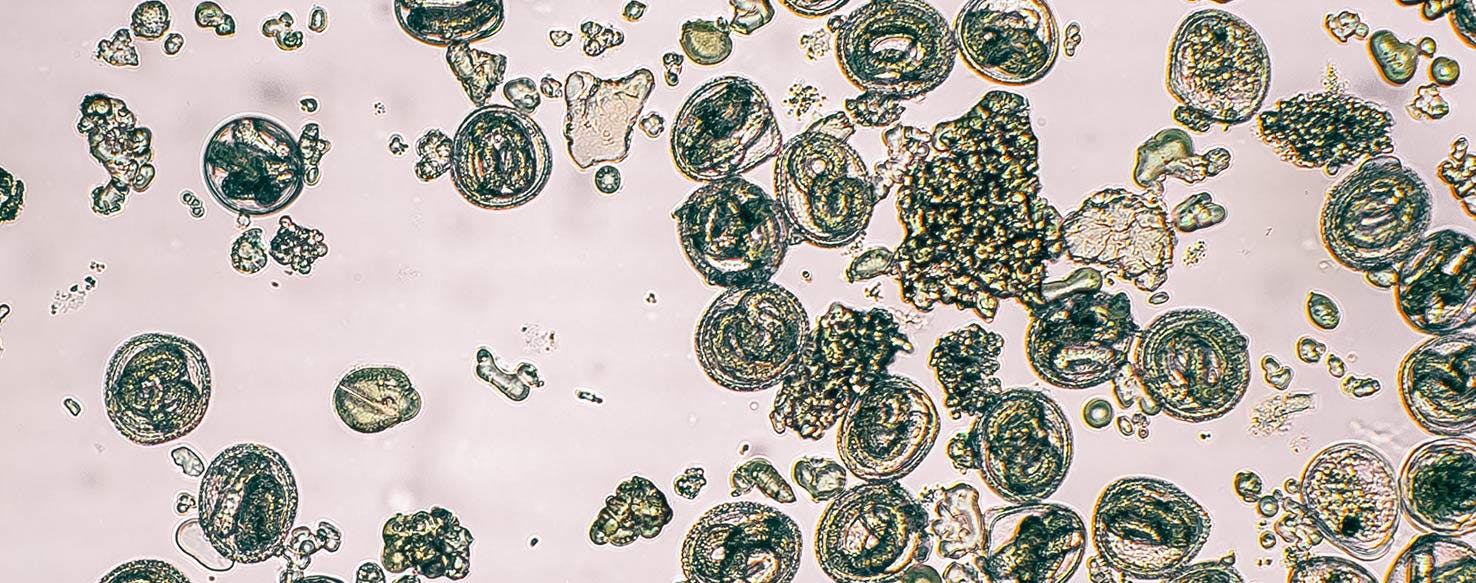If you've ever had roundworms, you might know the discomfort they can cause within your body. Roundworms look similar to earthworms, except they are parasites that make a cozy little home in your intestines. Round worms can live inside a person's body or on a person's body. They are often found in stool and can enter a person's mouth through contact or by ingestion. Roundworms cause serious issues from simple stomach aches and diarrhea to lung disease, pneumonia, and potentially even blindness. If you have roundworms, do you wonder who else in your life could possibly get them too?
Can Dogs Get Roundworms from Humans?
YES!
Roundworms can be passed from person to person, animal to animal, and species to species by skin contact or ingestion. If a person or a dog has roundworms and is nursing babies, their babies can also become infected with roundworms.
Does My Dog Have Roundworms?
If your dog is experiencing stomach pains, diarrhea, vomiting, weakness, lack of appetite, or potentially eating more than normal yet not gaining weight, your dog may potentially have roundworms. Because roundworms nest and multiply in the intestines of their host animals they will deprive your dog of necessary nutrients required for survival. Roundworms can multiply and potentially block the intestinal tract, causing a swollen and painful abdomen. Roundworms can also be found in your dog's feces, so if you suspect any parasite problem with your dog, check there for answers.
How Do I Treat My Dog’s Roundworms?
If you suspect your dog has roundworms or any parasites please see your veterinarian right away. The signs and symptoms of roundworms match signs and symptoms of other illnesses, some very serious. So your veterinarian will want to see your dog for a complete diagnosis. Once roundworms have been diagnosed, your veterinarian can prescribe deworming medication to rid your dog's body of them. You will also want to talk to your veterinarian about prevention and the things you can do with in your home and your dog's spaces to keep the environment free of roundworm eggs and larvae which can find their way back into your dog.
How are Roundworms Similar in Dogs and Humans?
Roundworms can affect just about any species. Signs and symptoms across the board for anyone affected by roundworms are similar. Because you or your dog can both be infected, the risk of roundworms within your home increases if you or your dog are infected. Both you and your dog will experience similar symptoms such as abdominal pain, swelling, diarrhea, or vomiting.
How are Roundworms Different in Dogs and Humans?
Because roundworms manifest in similar ways across the species, there aren't many differences between what your body will go through and what your dog's body will go through when infected with roundworms. However, there is a difference in prevention among humans and animals. Roundworms are usually found in environments that are unsanitary. Your dog, for instance, may get roundworms by eating feces from the backyard. People don't generally snack in ways dogs do. Roundworms would be typically passed from animal to person or person to person by unsanitary practices such as not washing hands after using the restroom. Humans also have the ability to clean up after our animals within our yards and homes. A yard and home that is free of animal feces is less likely to house roundworms.
Case Study
A nursing puppy was diagnosed with roundworms because he appeared to nurse much of the day yet wasn't thriving. With his hard pot-bellied appearance, as many puppies appear, his owner, concerned he wasn't getting enough nutrition from his mother, had the vet check him out. Because roundworms can multiply rapidly within the intestines, this puppy had an intestinal tract full of roundworms. Luckily for this little guy, the veterinarian was able to give him deworming medications. The mother and siblings were also treated with a dewormer. With a careful watch on all the other dogs within the household, no other roundworms were found either by symptoms or in the feces left in the yard. Only one puppy was affected. The veterinarian suspected roundworms came from the nursing mother.


